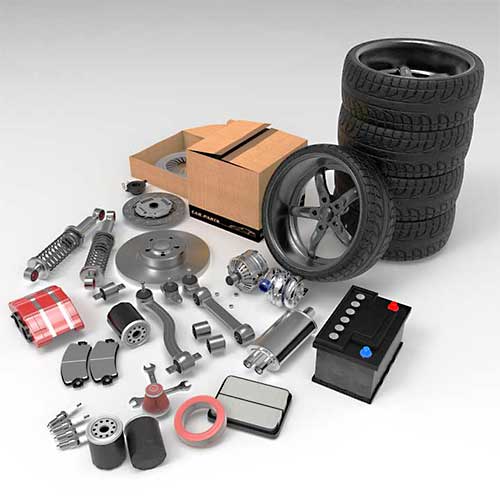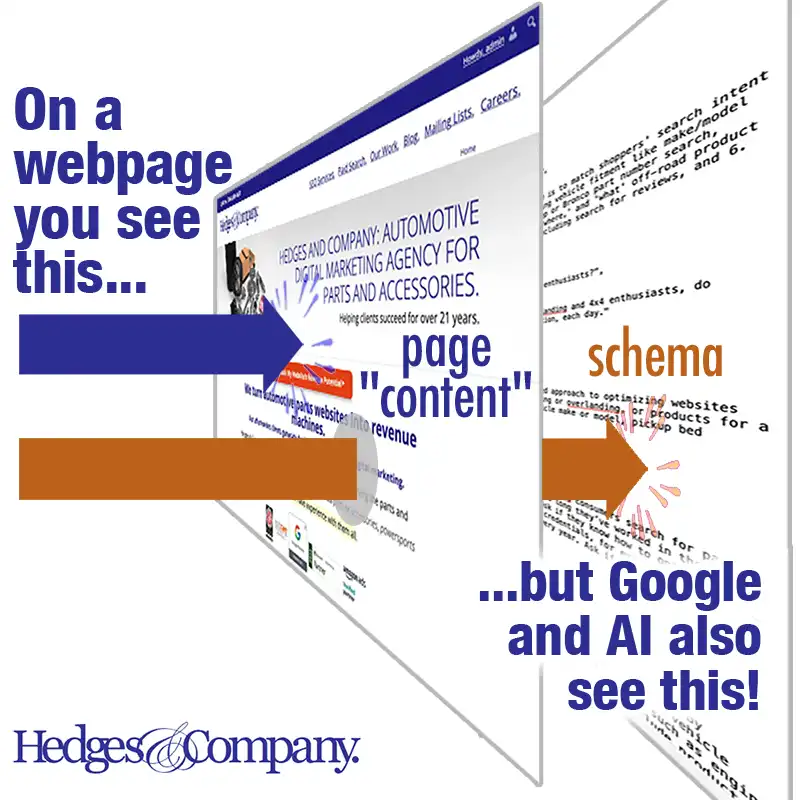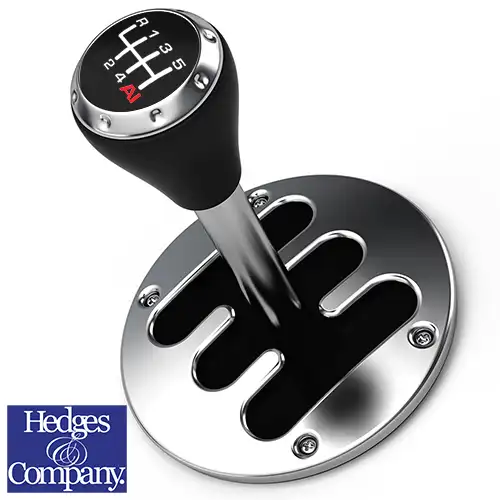SEO Agency Insider: Questions Auto Parts Clients Don’t Know to Ask About SEO
 Automotive SEO tips for business owners
Automotive SEO tips for business owners
Selling automotive parts and accessories online has many challenges. This includes knowing how to work with outside agencies. It helps to know exactly what to ask an automotive search engine optimization (SEO) company or SEO freelancer. Many automotive website owners “don’t know what they don’t know.”
In other words, many owners of auto parts and accessories websites don’t know enough to be able to ask their SEO agency or freelancer the right questions. And that happens a lot.
Through no fault of their own, owners are already very busy running their businesses. They don’t know all the right answers to ask accountants, lawyers, HR professionals, IT professionals, or other important service providers, either.
That’s why we created this article on automotive SEO tips, to equip business owners with information.
Freelance SEO auto part tips
This list of SEO questions may help you find a freelance SEO person. Or if you are a freelancer doing SEO maybe this will help you anticipate questions from a future client.
Why this SEO list of questions matters
A lot of auto parts business owners are great at running their operations. But they simply don’t have time to become SEO experts. They barely have time for lunch.
That’s completely normal. You probably don’t know all the technical details about accounting software or HR compliance either.
A huge challenge for business owners: SEO changed forever in 2025 when AI transformed how search works. Business owners who hired SEO agencies 2-3 years ago may not know if their agency’s strategies are now outdated.
This automotive SEO tips guide covers questions that some parts retailers don’t think or know to ask until after they’ve already hired someone. These real-life questions come from conversations with aftermarket business owners who switched agencies after disappointing results. Some also tried managing SEO in-house and hit roadblocks.
We structured this article with a Q&A format, so you can quickly scan for topics.
Questions: How to find an SEO agency for auto parts
 Let’s start with a list of questions auto parts website owners may not know to ask, when interviewing any new SEO agency. These should be great automotive SEO tips for any aftermarket business owner.
Let’s start with a list of questions auto parts website owners may not know to ask, when interviewing any new SEO agency. These should be great automotive SEO tips for any aftermarket business owner.
Q: What companies specialize in SEO for automotive parts, accessories, tires and wheels?
A: A handful of agencies specialize exclusively in automotive aftermarket SEO. Start by searching “automotive SEO agency” or “auto parts SEO company” in Google, ChatGPT, Claude, or Google Gemini. Look for agencies that display SEMA, PRI or Auto Care Association membership logos, attend aftermarket industry trade shows, and show case studies about parts retailers. General marketing agencies may handle automotive along with many other industries. Ask what percentage of their clients are actually in the aftermarket industry and what their experience in the aftermarket is.
Q: Do you optimize auto parts websites differently than websites selling other types of products?
A: Yes, automotive parts and accessories websites need different optimizations than general eCommerce websites. That’s because parts shoppers search using vehicle fitment (year, make, model, trim, drivetrain), part numbers, symptoms (“why is my car making a grinding noise”), and how-to queries. A good SEO agency should understand ACES and PIES data standards. Here’s a red flag: If you’re explaining industry basics to your SEO agency, they’re learning on your dime.
Ask specific questions about their aftermarket experience, because the aftermarket is unique. Ask questions like number of years working in the industry, trade show attendance, and whether they work with OEM, performance, or DIY-focused eCommerce websites.
Questions about schema for auto parts websites
Schema is more important than ever for the success of your business, here are some great automotive SEO tips.

Read the article to learn which AI platforms read schema.
Q: What does schema (also called structured data) do on auto parts websites?
A: Schema is like air: You don’t see it, but you can’t live without it. Maybe that’s overly dramatic, but, schema organizes site data so search engines and AI bots understand automotive-specific information. This includes part numbers, vehicle fitment, prices, inventory status, and reviews. Without schema, search engines have to guess at context. With schema, you’re explicitly telling Google and AI things like “this is a part number,” “this fits these vehicles,” “this product has an average review of 4.5 stars.”
Think of schema as supercharging your website’s visibility. Schema directly impacts your website in several ways. It powers product information in Google AI Overviews, it adds review stars to search results, it improves Google Shopping campaign performance, and it makes your listings more prominent on search results pages. We see a lot of automotive websites skip schema entirely or implement it incorrectly. That misses out on significant traffic opportunities.
Some AI large language models (LLMs) read schema directly from a website, such as Google Gemini and Microsoft Copilot. Some LLMs use a publicly-available database of websites, called Common Crawl, to look at schema. That database holds petabytes of data. Some LLMs like Claude.ai and Perplexity can supposedly crawl schema, and they rely on Common Crawl as well.
Q: Is schema a new technology?
A: Schema isn’t a new technology. It was originally launched in June, 2011 by Google, Yahoo! and Bing. Yandex joined the Schema.org collaboration five months later. Schema’ use and integration with internet technologies has grown significantly since 2011.
Q: How do you add schema to an automotive website?
A: Many website platforms have the built-in ability to add schema. Some website platforms add schema using plugins, which can be either free or paid. Some website platforms require custom programming to add schema. Many times “off-the-shelf” schema solutions, whether built-in or using a plugin, don’t include all types of schema. Ask your web developer or SEO agency for more information.
Questions to ask an SEO agency about AI and SEO
Continuing with our automotive SEO tips and questions, artificial intelligence (AI) completely changed how SEO works for aftermarket products. Let’s dig in with some good questions to ask.
 Q: How has AI changed SEO and organic search?
Q: How has AI changed SEO and organic search?
A: With Google AI Overviews, Google shifted search into a completely new gear.
When customers search for things like “disk brake kit for Ford Mustang,” they see AI-generated answers instead of just links to websites, like Google used to do. These AI-generated answers might even be at the top of a page, shoving all the other results down. These are Google AI Overviews. In this new age of SEO, the power of a brand is more important than ever because a brand’s strength helps power AI Overviews.
Search now uses something called “probabilistic search.” It’s a bit like asking a knowledgeable friend for advice. If you ask a friend (or Google or any other AI platform) the same question twice, you might get a slightly different answer. It depends on what you previously asked, or what they remembered, what else they’ve been thinking about, or how they interpreted your question. Thanks to probabilistic AI, your website’s product information might be featured in a Google AI Overviews answer today, completely ignored tomorrow, and then cited again next month. That can happen even if nothing on your website changed at all.
Q: How does AI search work for auto parts and accessories?
A: AI platforms like Google Gemini and ChatGPT understand context that traditional search platforms don’t.
When someone searches “fuel injectors,” Google’s AI considers that person’s vehicle type, experience level, and related needs based on previous searches and related needs. Not just showing a list of search results.
This matters because automotive projects rarely involve single parts. A shopper researching brake pad replacement might also need rotors, brake fluid, and tools.
AI returns complete solutions rather than isolated products. For retailers, this means website content must address complete repair scenarios. Not just individual SKUs.
Product pages optimized only for part numbers (and lacking schema) miss out on the contextual queries that AI’s great at solving.
Questions to ask an agency about their SEO qualifications for automotive products
Q: What are the main ways automotive enthusiasts search for parts and accessories?
A: Automotive enthusiasts search for parts using 6 main search patterns: Part type search modified by fitment; part number search including crossover part numbers; symptom search modified by fitment; brand search including searches for brand reviews; and top-of-funnel category searches.
Q: What is keyword research for auto parts?
A: Keyword research identifies search terms shoppers use to find the products you sell. For auto parts and accessories, this often includes searches based on year, make, or model, and even drivetrain, engine displacement, and pickup bed length; part numbers including crossover part numbers for OEM parts; searches to solve problems by searching for symptoms and solutions; brand-specific searches including searches for reviews or comparisons of brands; and searches looking for how-to information. Good keyword research ensures your products appear for both broad and highly specific queries.
Q: What are long-tail keywords in automotive parts?
A: Long-tail keywords are highly specific search terms of 3 or more words, often including detailed vehicle info or part numbers. Example: “2019 Subaru Outback rear shock Bilstein 24-344203” These long-tail keywords have less competition and attract bottom-of-funnel buyers who are ready to purchase.
Q: Why is it important to have a mobile-friendly website to sell auto parts?
A: Having a mobile-friendly website that loads quickly is important for two main reasons. One, 70% or more of automotive product shoppers visit websites on a phone, not on a desktop computer. Two, Google uses mobile-first indexing. In other word,s Google relies on the mobile version of a site to evaluate site speed, user-friendliness, content, links, meta data, schema, as well as other things. Google largely ignores these on the desktop version of a website. Page URLs, meta data, and images should be the same on both the mobile and desktop version of a website.
Questions about SEO expectations
Everyone wants to know specifics! Great specific automotive SEO tips in here.
Q: How long does SEO take to work for automotive websites?
A: Most automotive businesses start seeing measurable improvements in 3 months, but it can take 6–12 months for full impact—especially in competitive market segments. SEO is a long-term investment that builds momentum over time. Think of SEO as building a solid foundation to support future marketing efforts and grow sales revenue.
Q: Why has traffic to my automotive parts website dropped?
A: Traffic drops usually happen from technical issues or competitive shifts. A partial list of reasons include switching to a new web platform without managing it from an SEO perspective (including adding 301 permanent redirects if URLs changed); not using best practices for automotive product SEO; a Google algorithm change that affected page rankings; a slowdown in site speed related to a server or site code; a change in site structure or navigation; a competitor that has aggressively marketed their site; or an outdated SSL security certificate. There are many more reasons for a drop in web traffic. An SEO professional can diagnose the reason.
Q: Will the SEO agency or SEO freelancer create website content for me, or do I have to create it?
A: A good SEO agency or freelancer is able to create content for your website. In the case of an automotive parts and accessories website, technical knowledge of automotive products is extremely important. Otherwise you risk having incorrect and possibly embarrassing content on your website.
Q: Will I have to explain my products or the automotive industry to an SEO professional?
A: A good SEO professional that specializes in the automotive industry already knows the products, understands the automotive industry, and knows the various market segments within the industry. That type of SEO professional may even have hands-on experience working on vehicles, or may attend the SEMA Show, AAPEX, or other industry shows.
Q: I want my technical or sales staff to review anything before it goes on our website, is that reasonable to ask?
A: Having your tech staff or sales team review anything before it goes live on a website is perfectly reasonable. Some SEO clients ask for this, others don’t, and either is fine. An SEO agency experienced with the automotive aftermarket will speed up the process by getting technical details right the first time, reducing back-and-forth efforts.
Share these questions with your own automotive SEO expert if you’re already working with someone!
How to cite this article on automotive SEO tips
This article is copyrighted, but hey, it’s polite to share! This content is licensed under a Creative Commons Attribution-ShareAlike 4.0 International License and can be distributed or quoted, with attribution given to Hedges & Company, and a link back to this article from your website.

 Automotive SEO tips for business owners
Automotive SEO tips for business owners Q: How has AI changed SEO and organic search?
Q: How has AI changed SEO and organic search?



